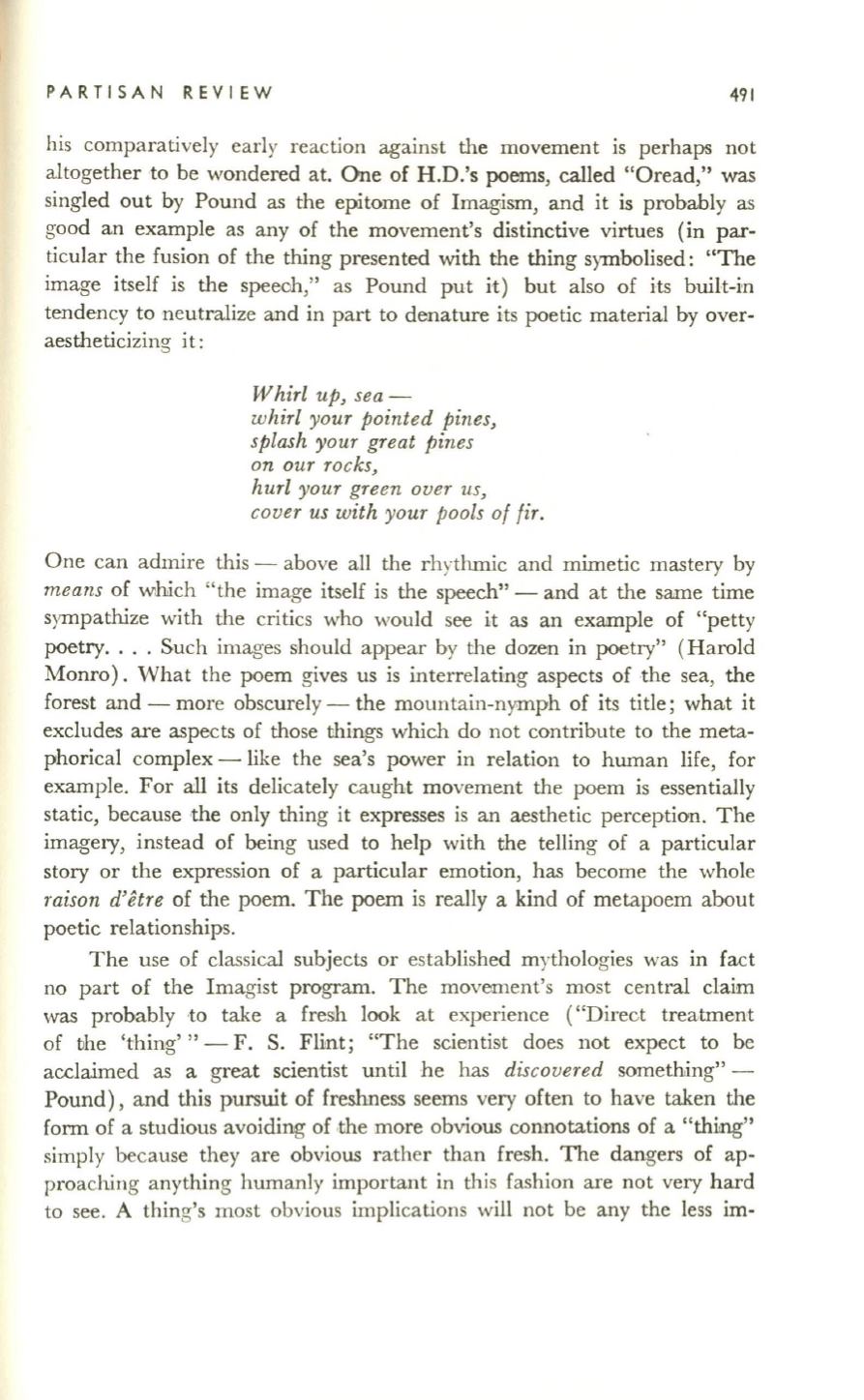
PARTISAN REVIEW
491
his comparatively early reaction against the movement is perhaps not
altogether to be wondered at. One of H.D.'s poems, called "Oread,"
was
singled out by Pound as the epitome of Imag1sm, and it is probably as
good an example as any of the movement's distinctive virtues (in par–
ticular the fusion of the thing presented with the thing symbolised: "The
image itself is the speeah," as Pound put it) but also of its built-in
tendency to neutralize and in part to denature its poetic material by over–
aestheticizing it:
Whirl up, sea-
whirl your pointed pines,
splash your great pines
on our rocks,
hurl your green over us,
cover us with your pools of fir.
One can admire this - above all the rhythmic and mimetic mastery by
means
of Wlhich "the image itself is the speech" - and at the same time
sympathize with the critics who would see
it
as an example of "petty
poetry.... Such images should appear by the dozen in poetry" (Harold
Monro). What the poem gives us is interrelating aspects of the sea, the
forest and - more obscurely - the mountain-nymph of its title; what it
excludes are aspects of those tlhings which do not contribute to the meta–
phorical complex - like the sea's power in relation to human life, for
example. For
a:ll
its delicately caught movement the poem is essentially
static, because the only thing it expresses is an aesthetic perception. The
imagery, instead of being used to help with the telling of a particular
story or the expression of a particular emotion, has become the whole
raison d'etre
of the poem. The poem is really a kind of metapoem about
poetic relationships.
The use of classical subjects or established mythologies was in fact
no part of the Imagist program. The movement's most central claim
was probably to take a fresh look at experience ("Direct treatment
of bhe 'thing'" - F. S. Flint; "The scientist does not expect to be
acclaimed as a great scientist until he has
discovered
something"–
Pound), and this pursuit of freshness seems very often to have taken the
form of a studious avoiding of ,the more obvious connotations of a "thing"
simply because they are obvious rather than fresh. The dangers of ap–
proaching anything humanly important in this fashion are not very hard
to see. A thing's most obvious implications will not be any the less im-


